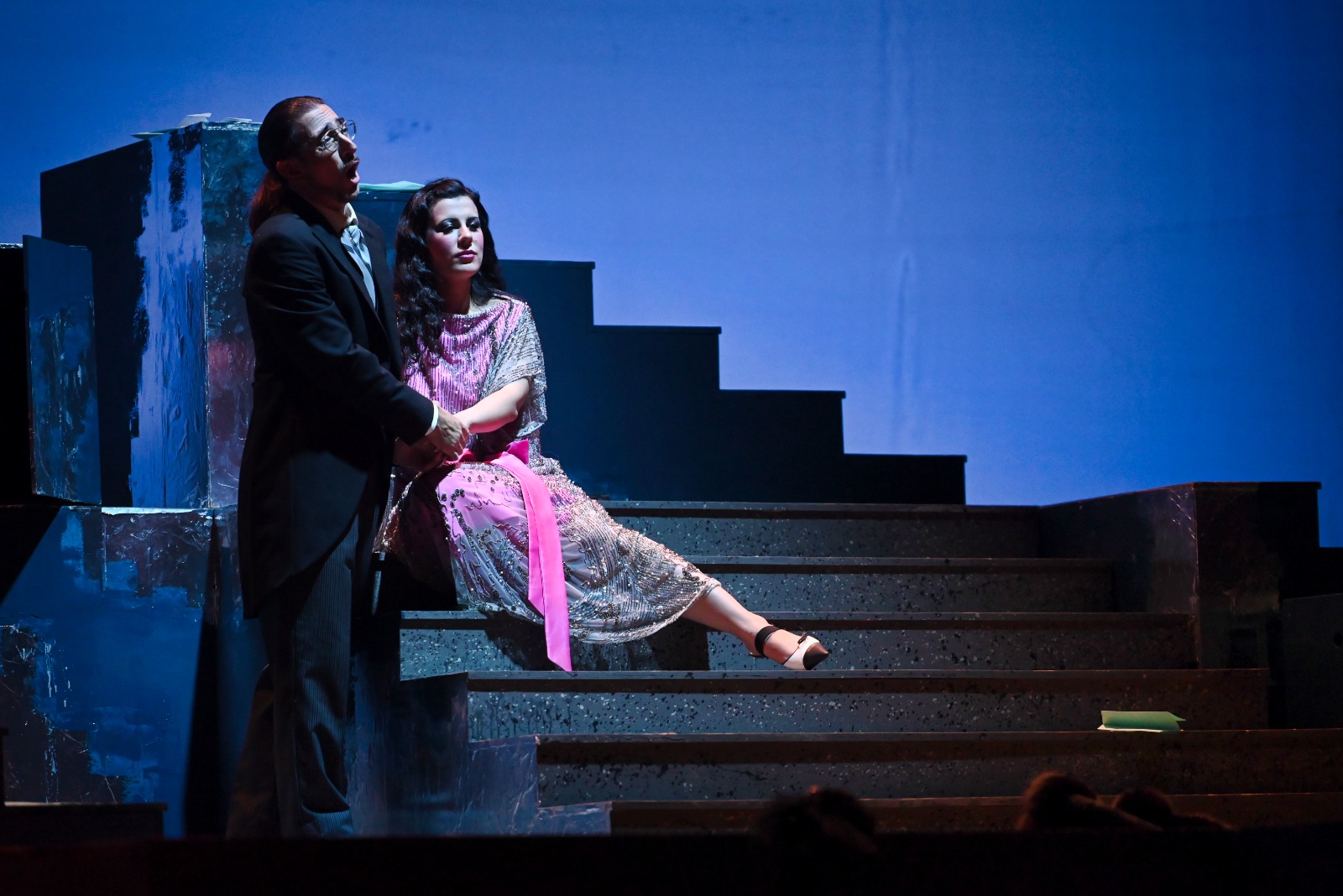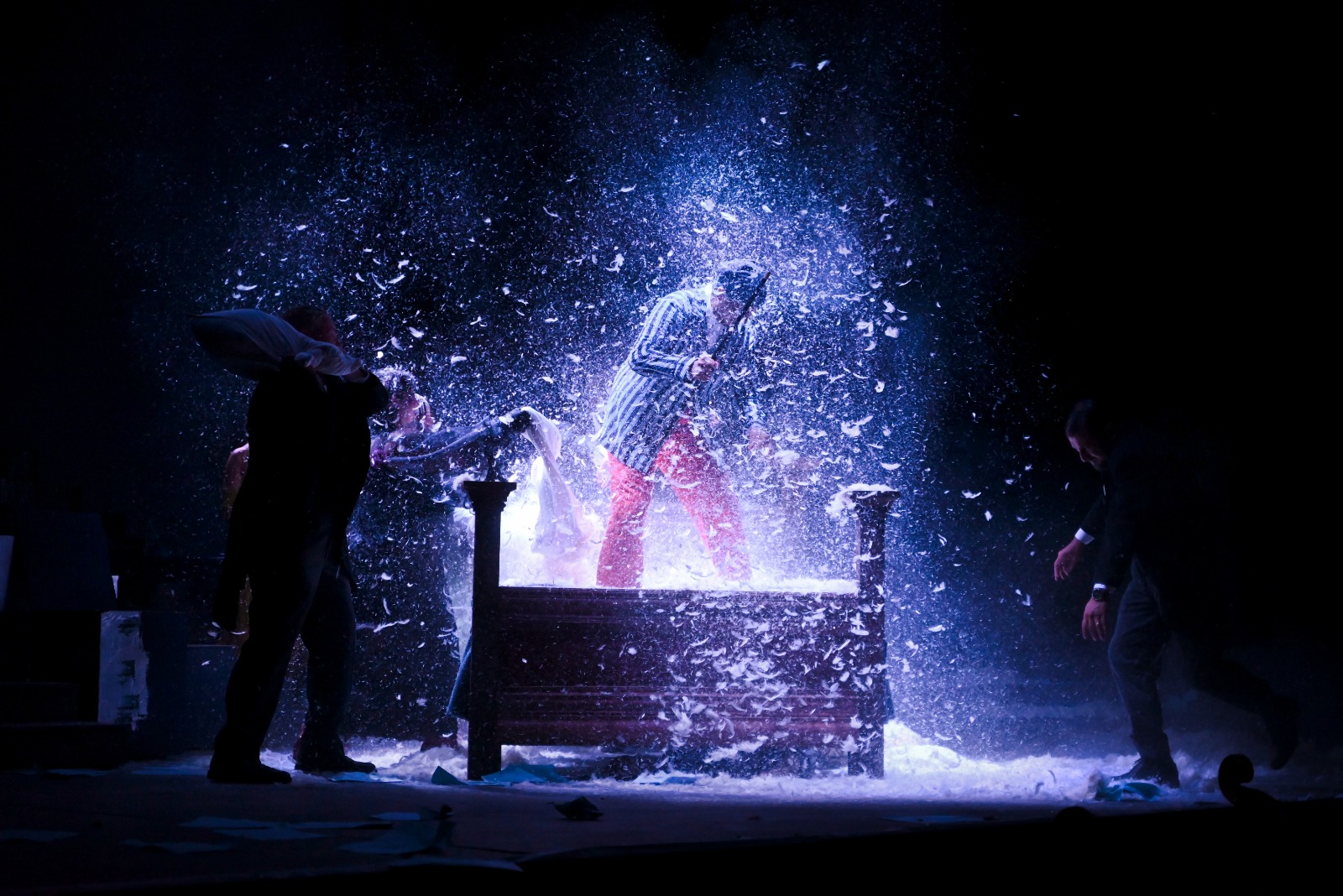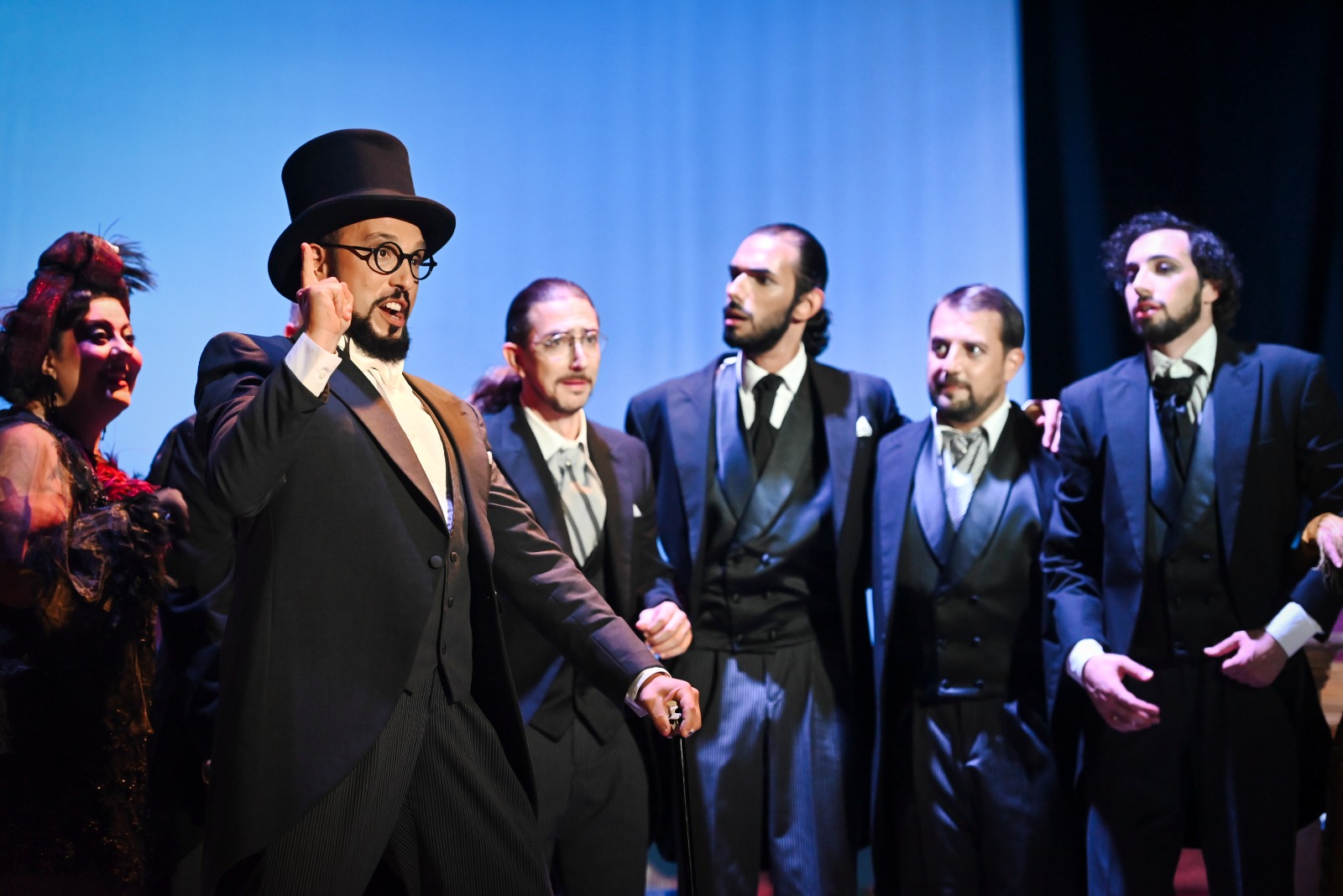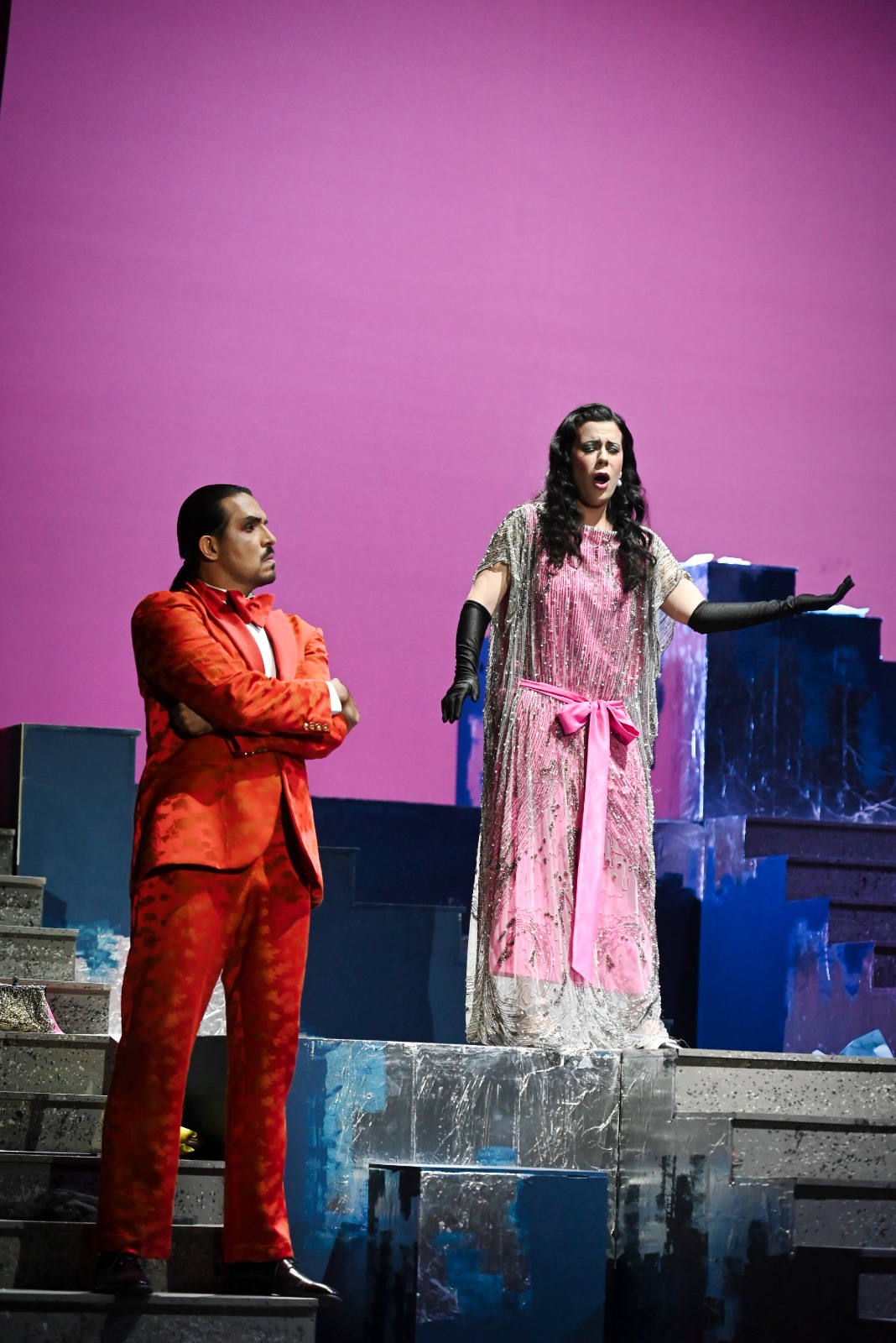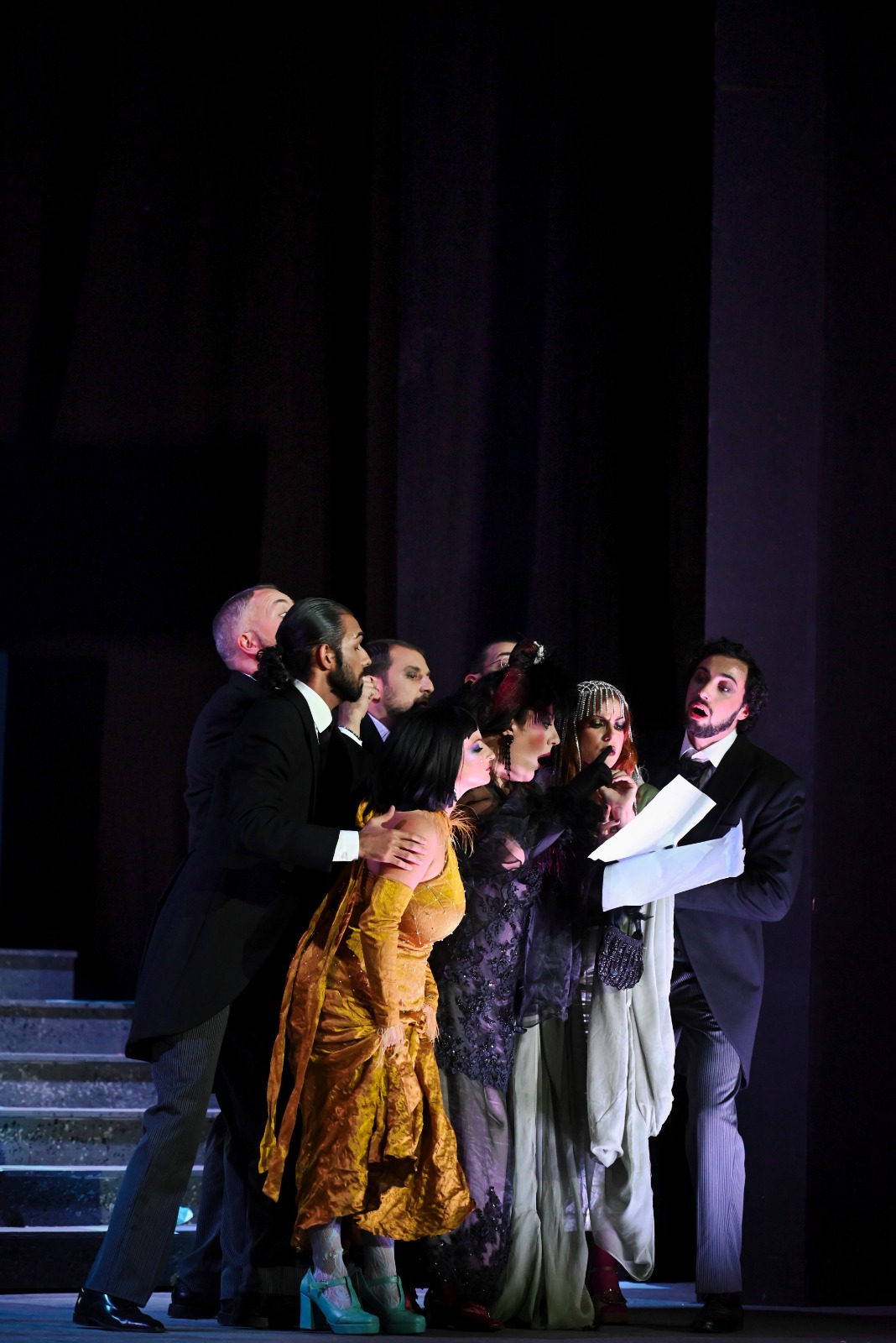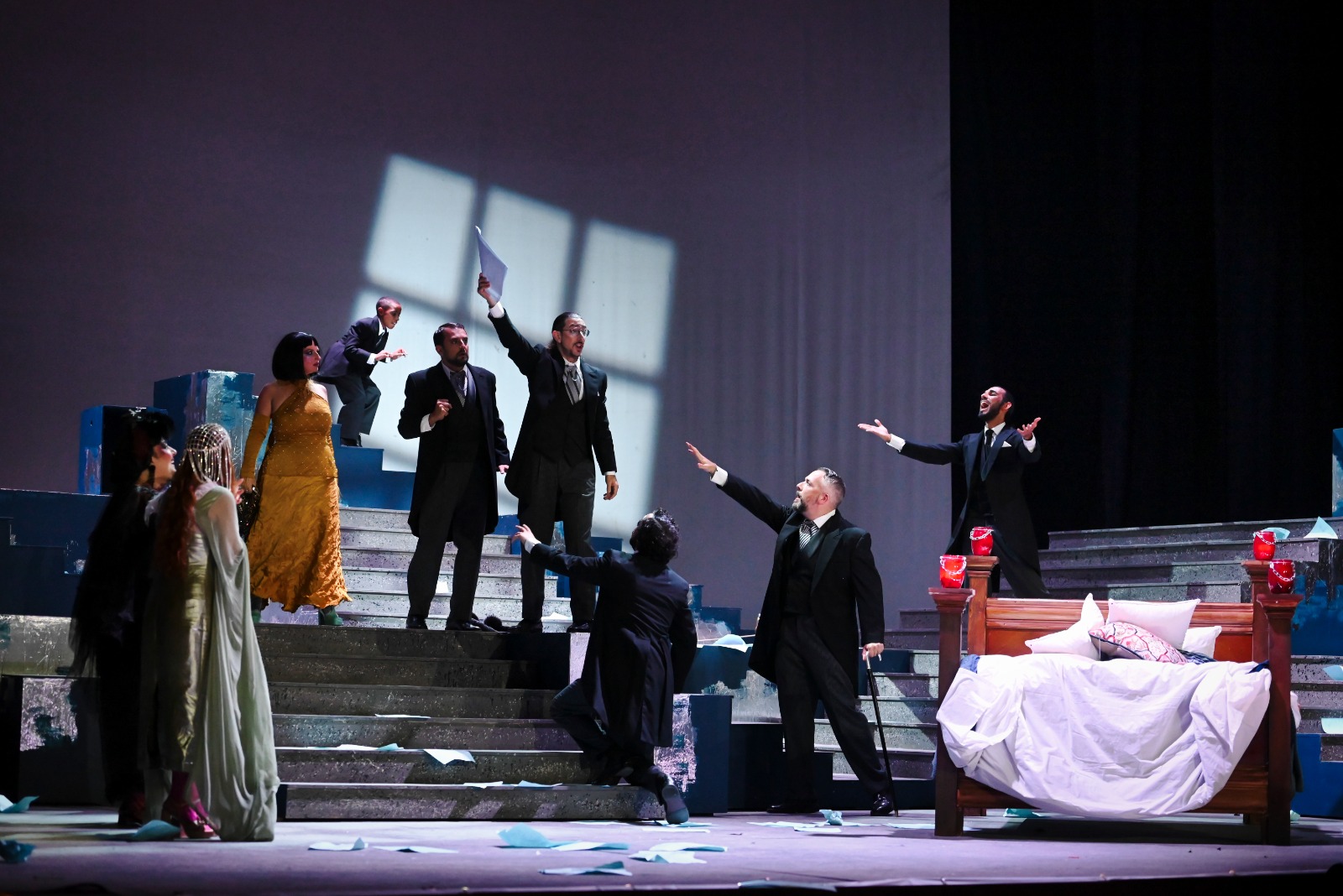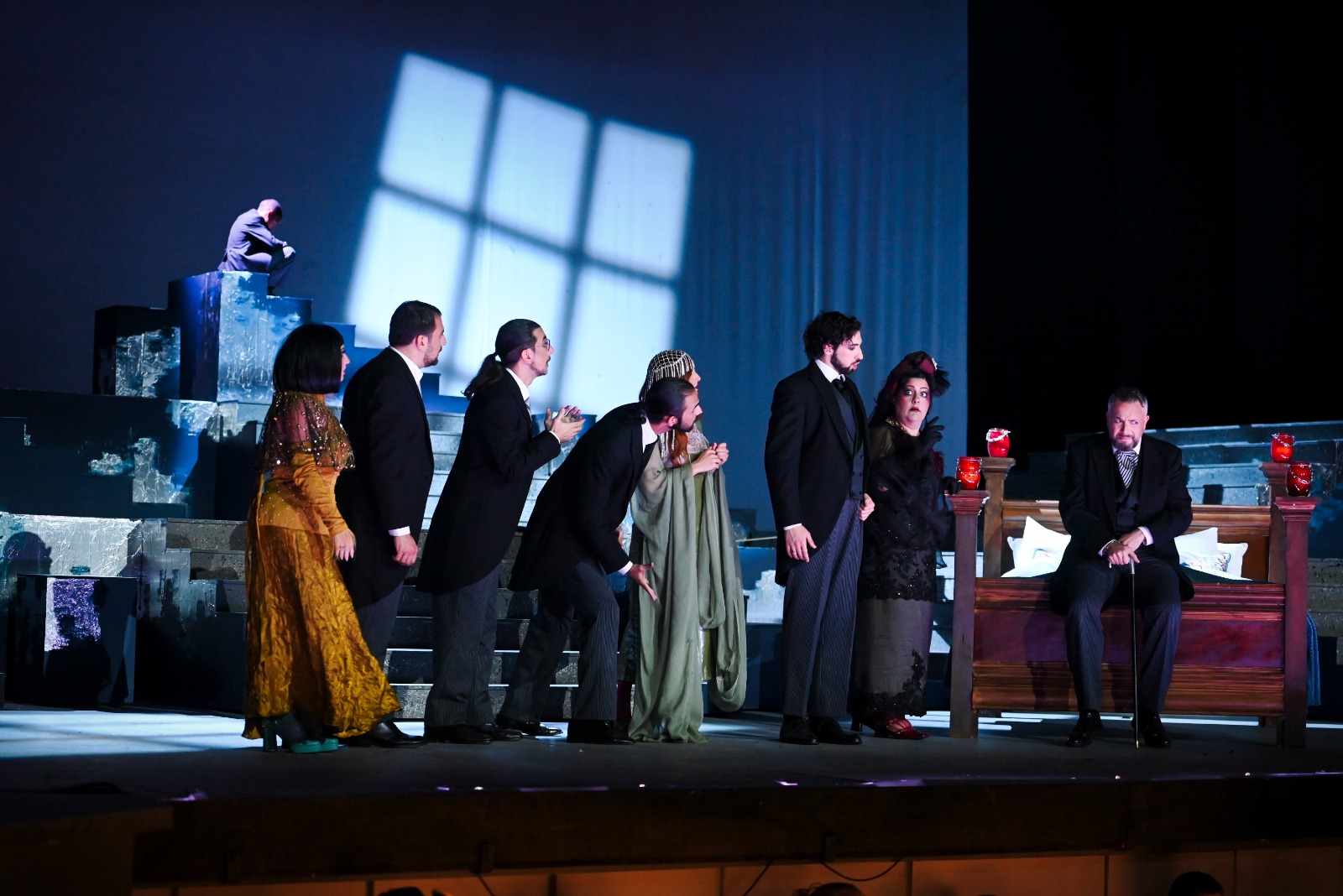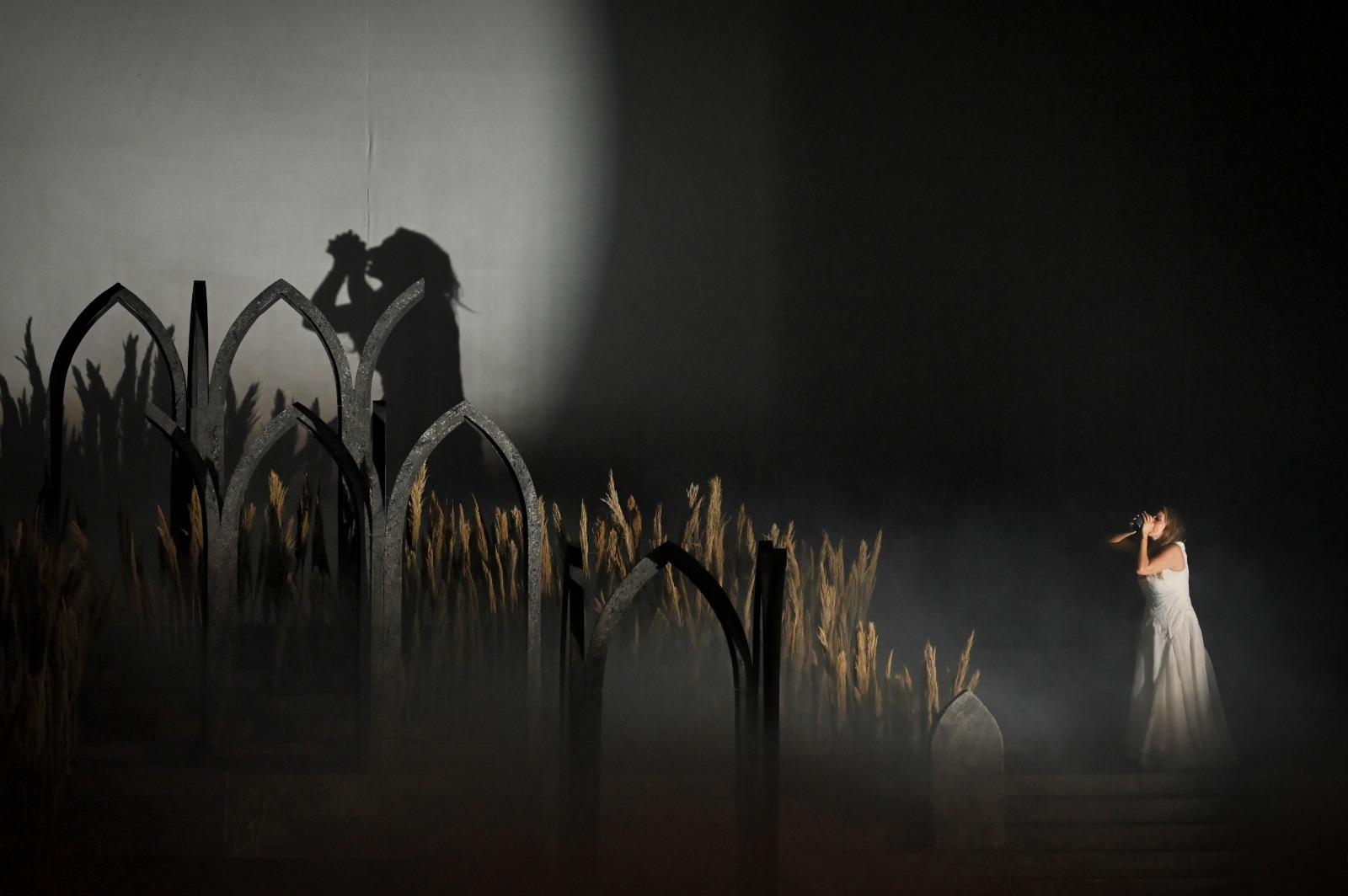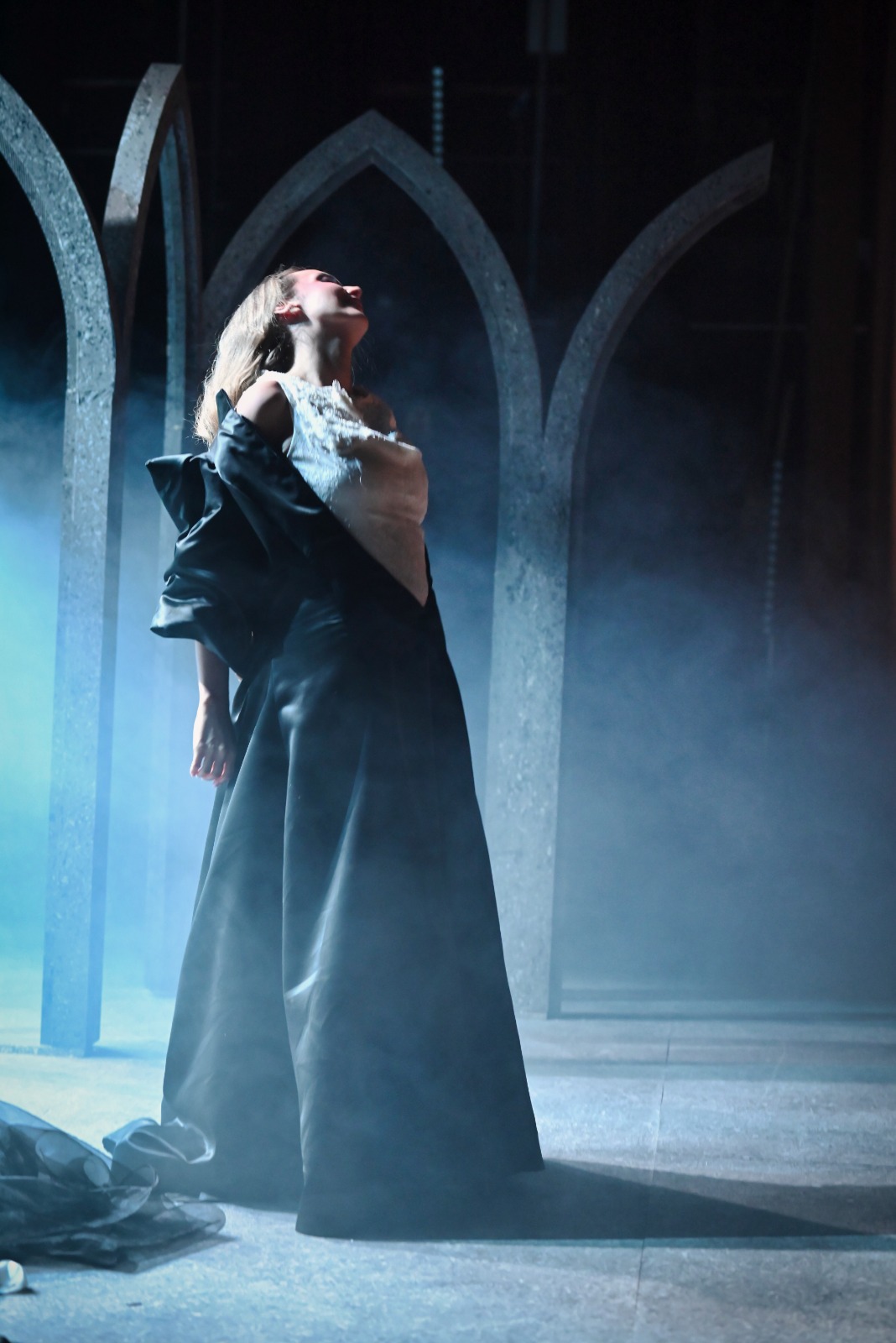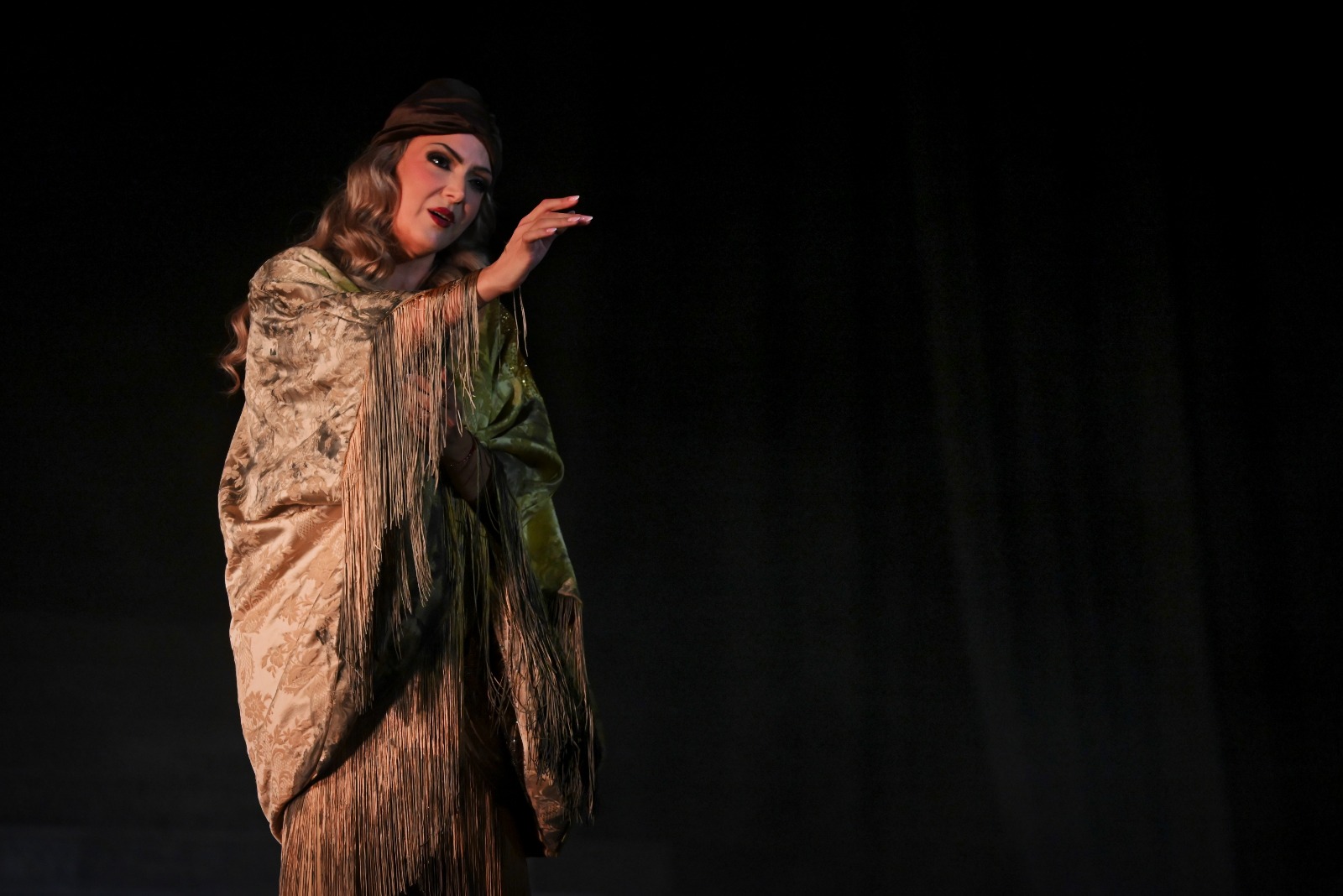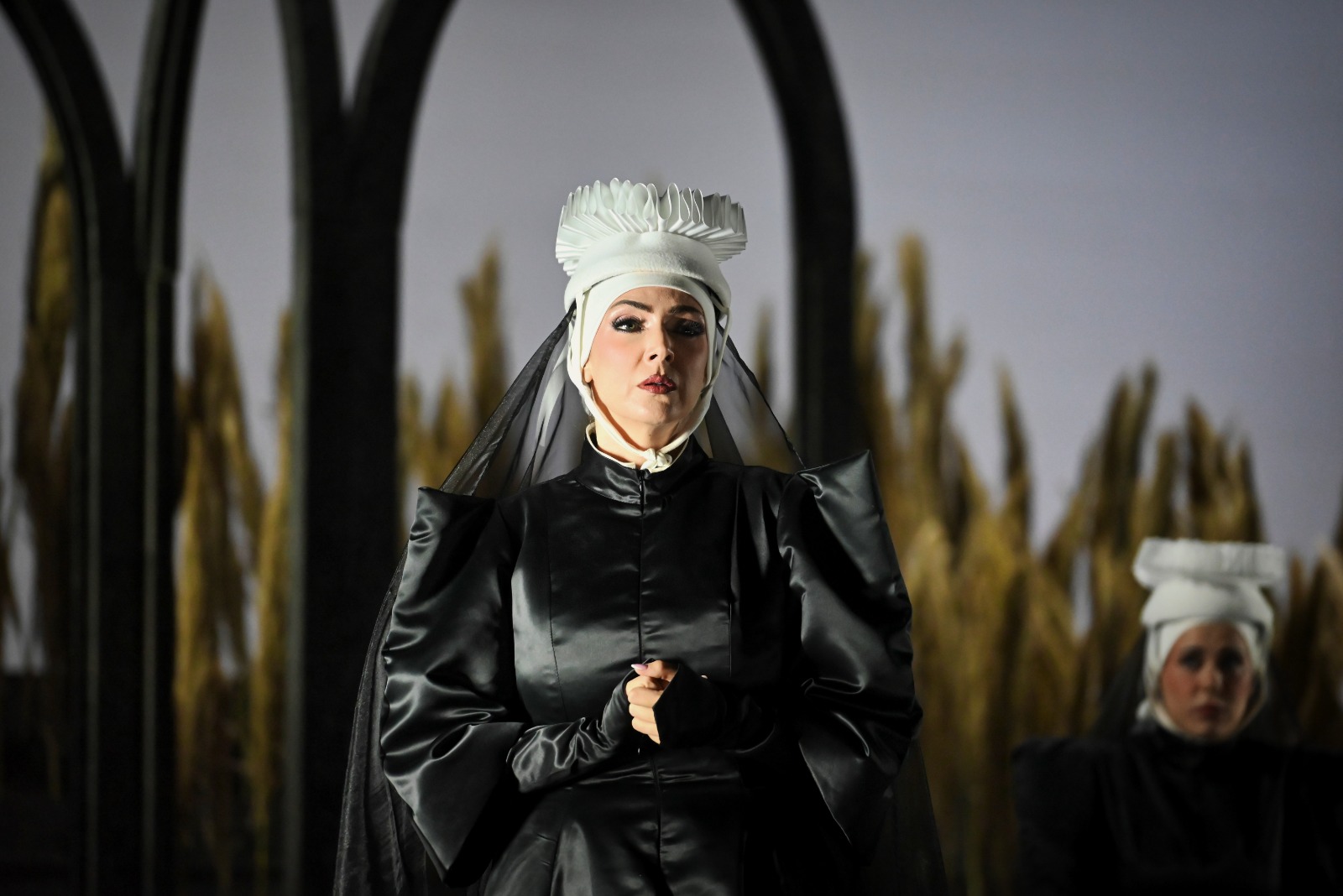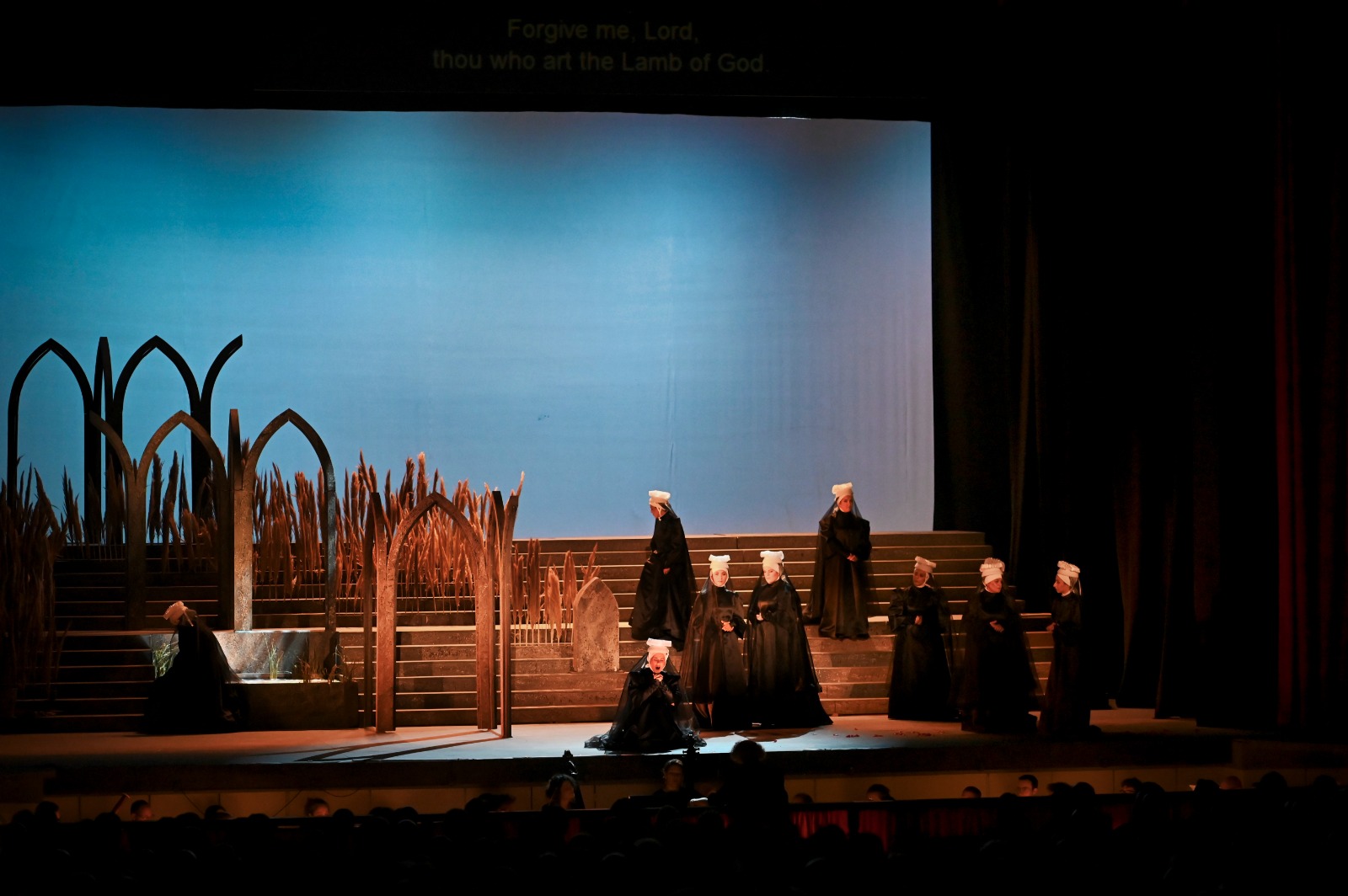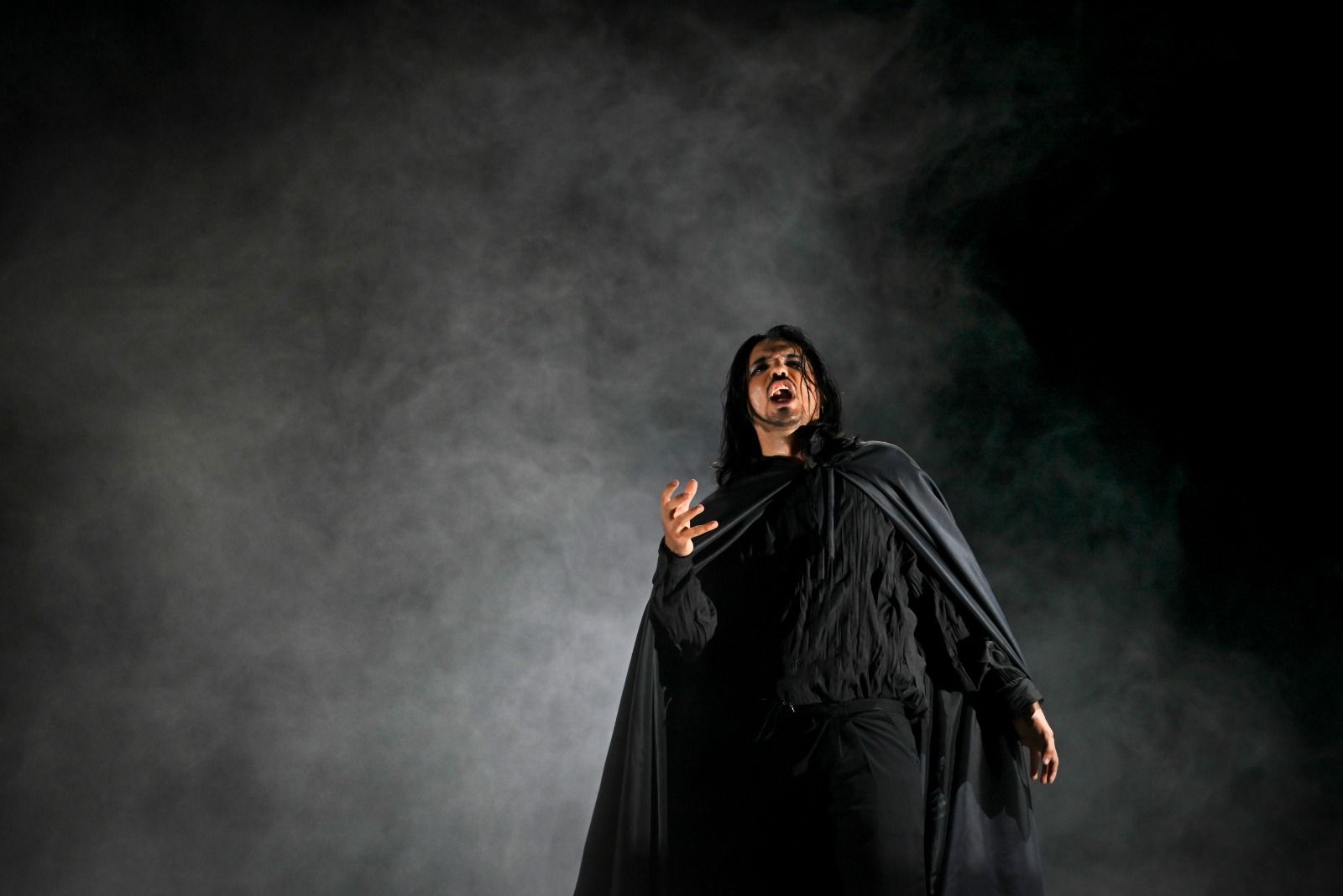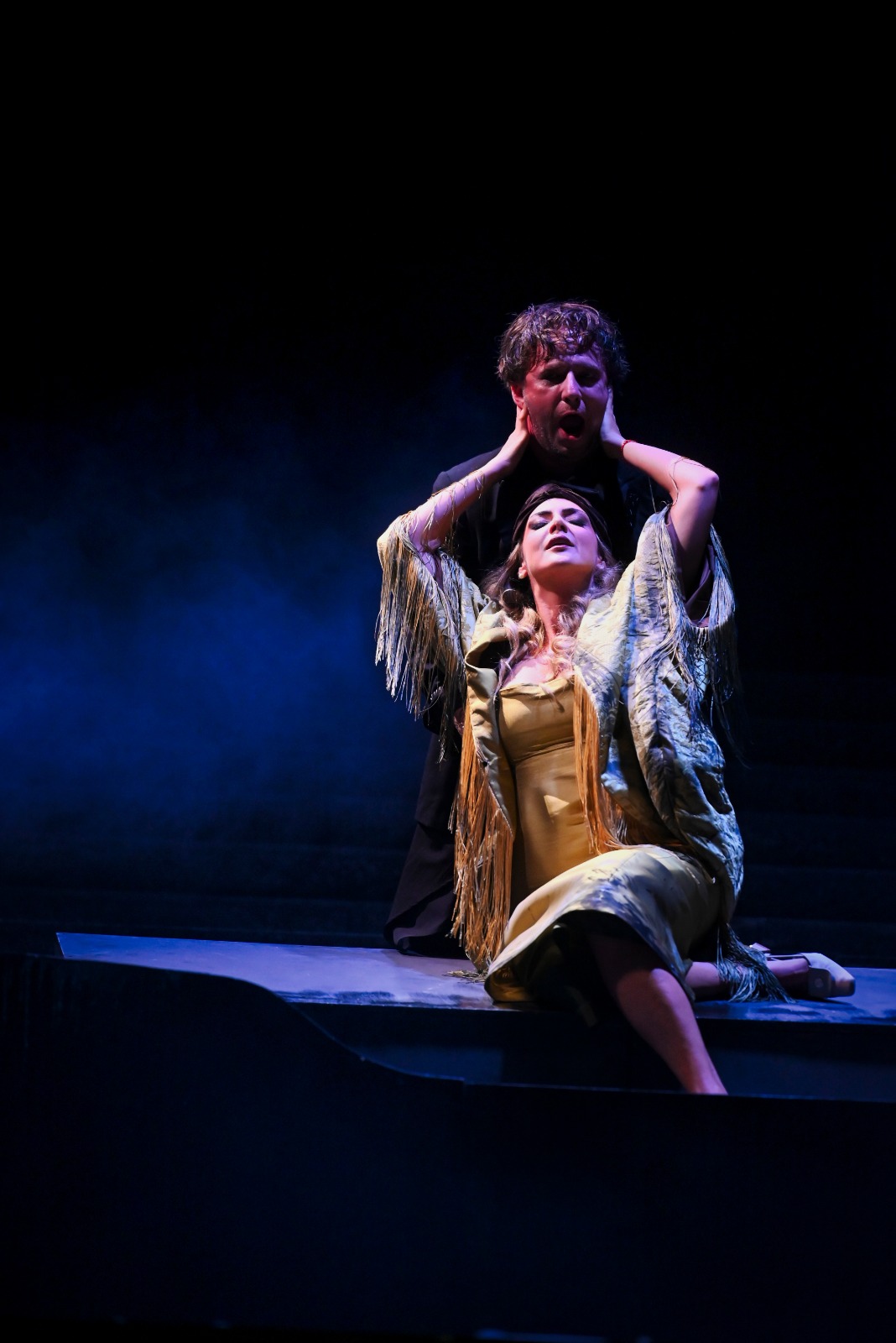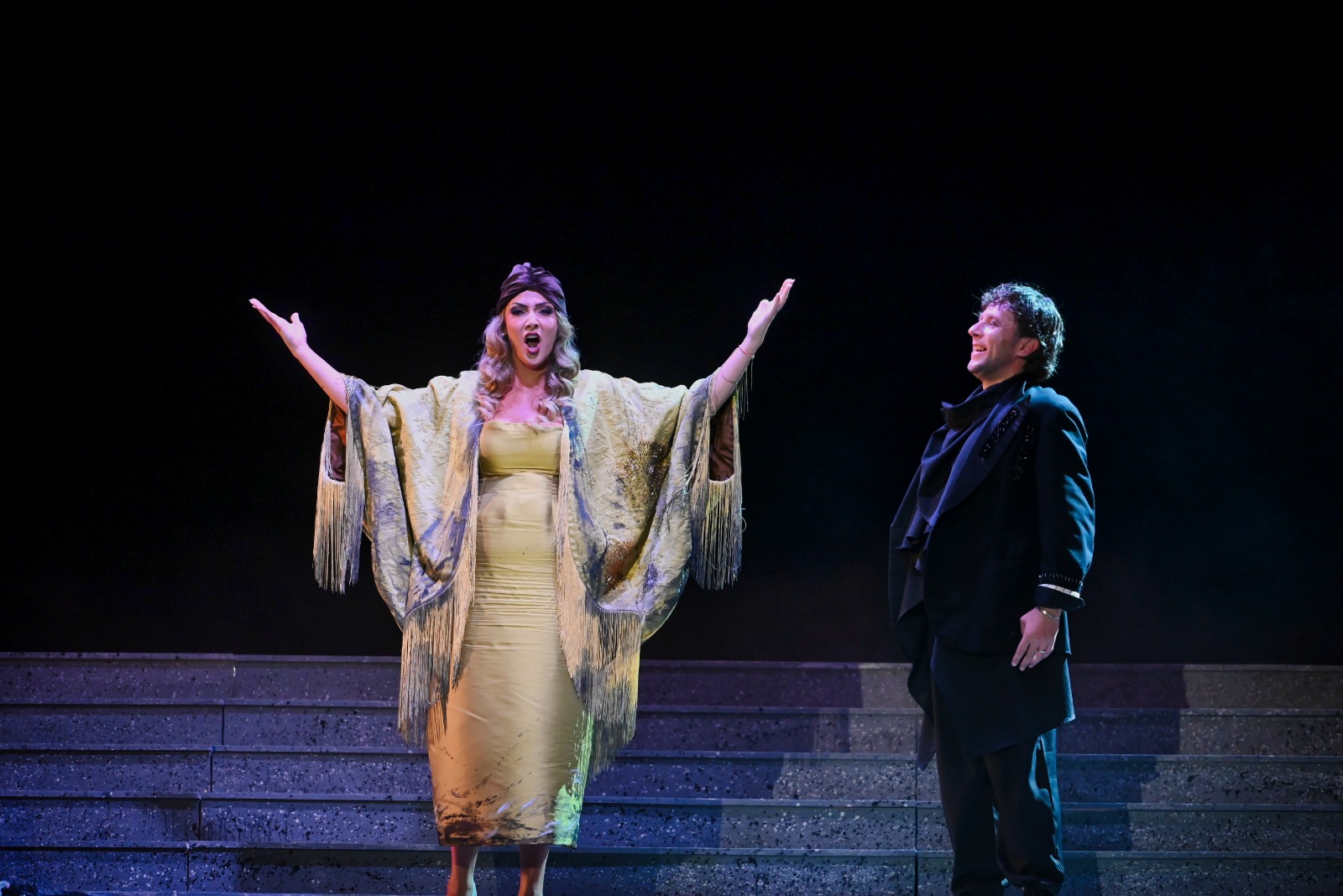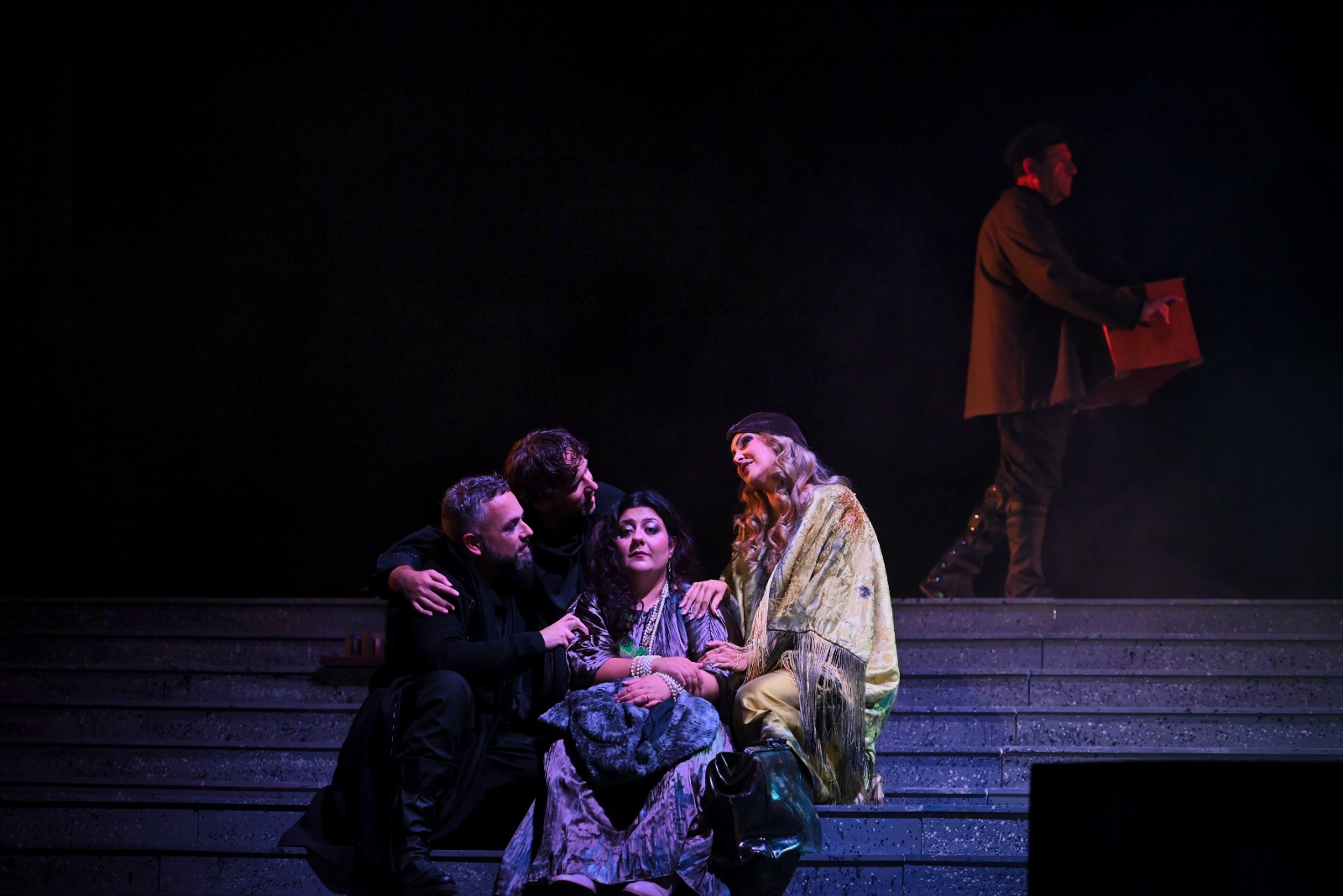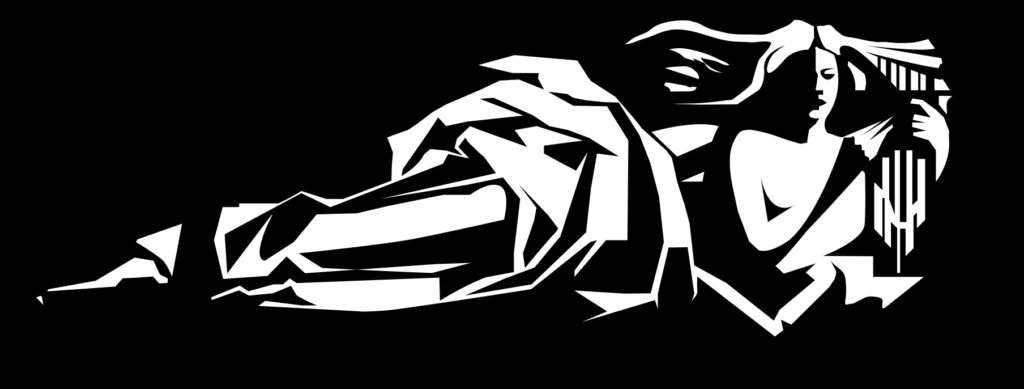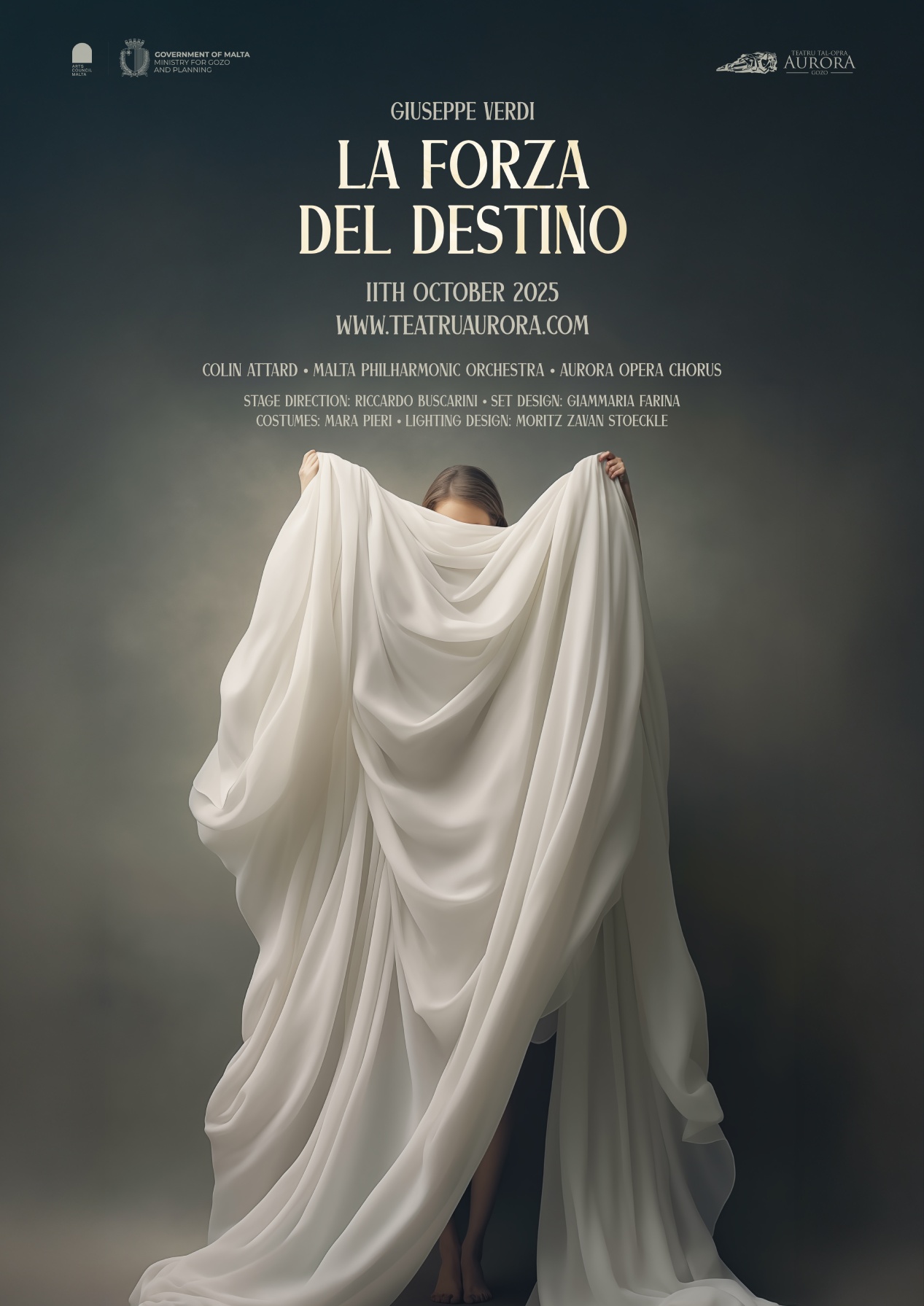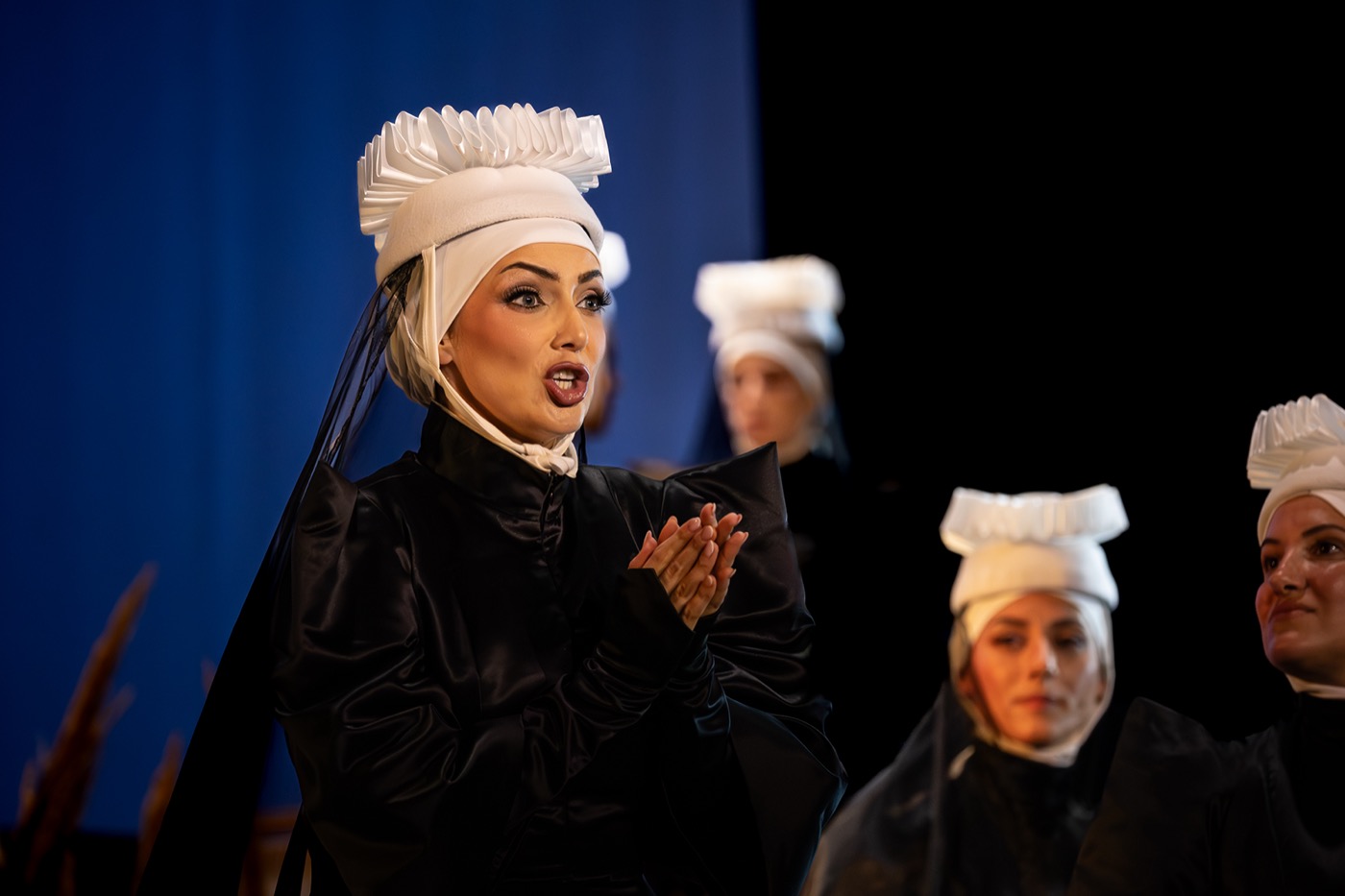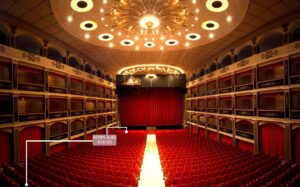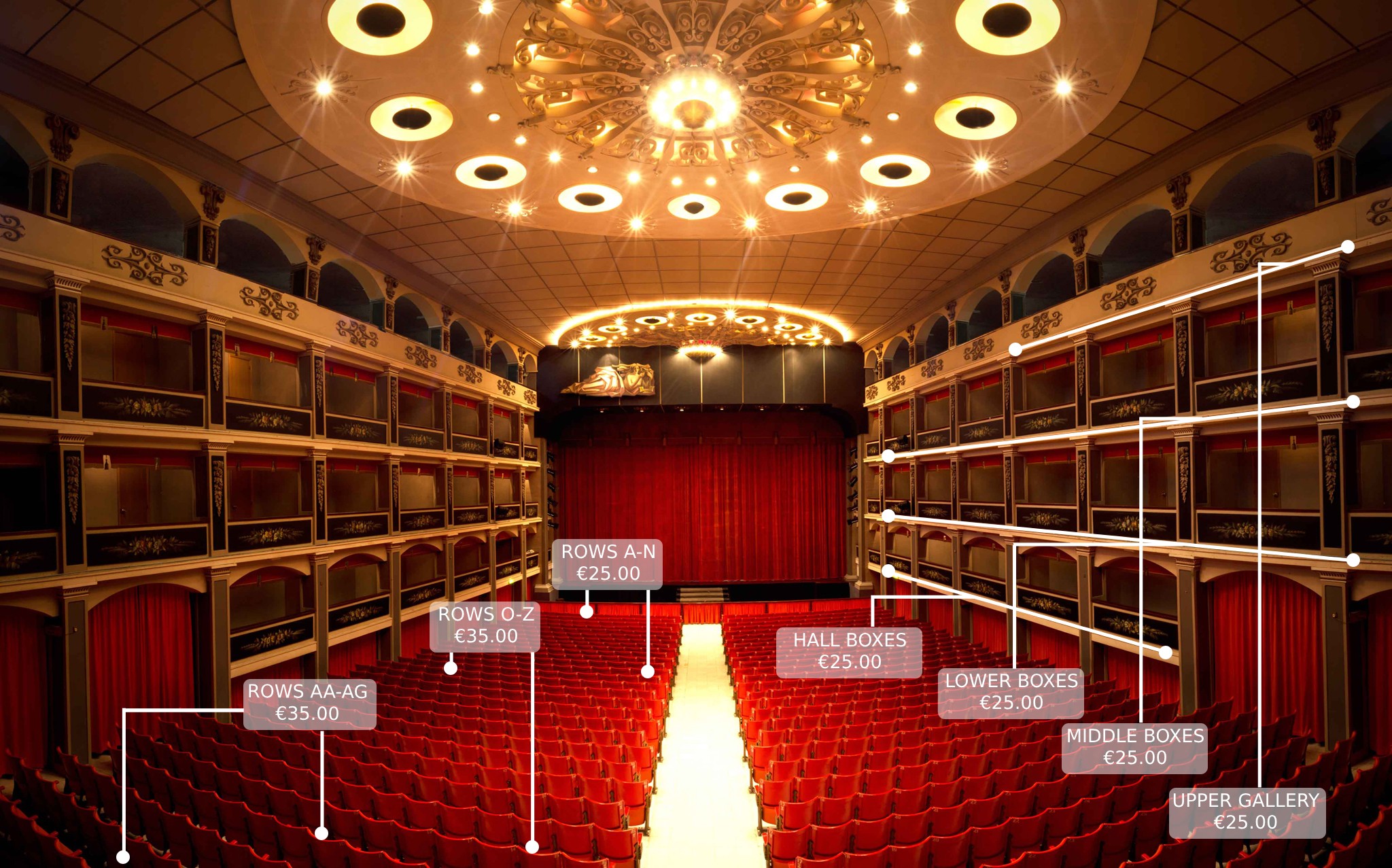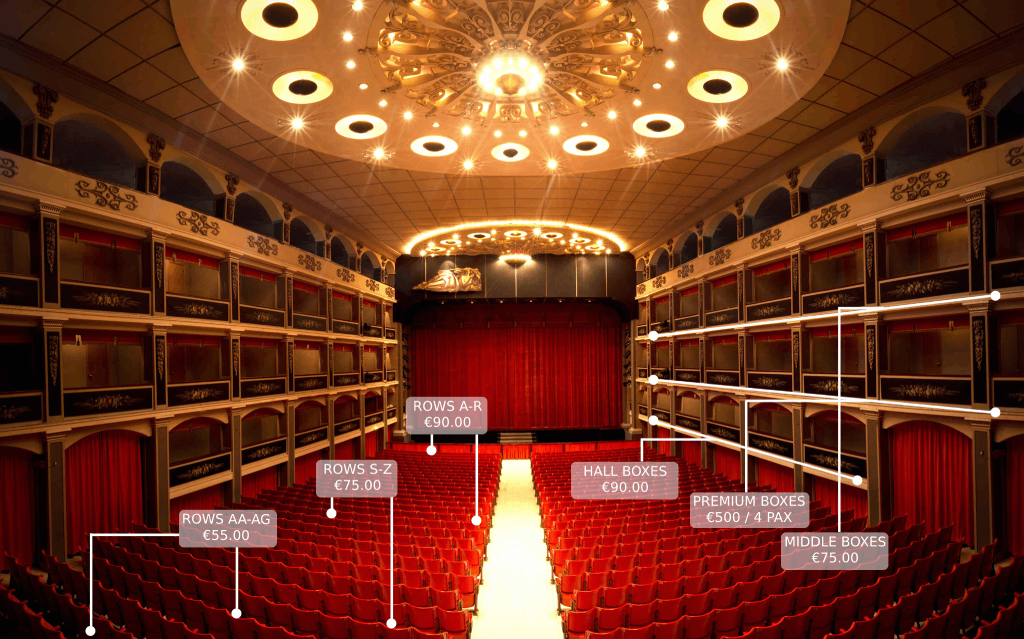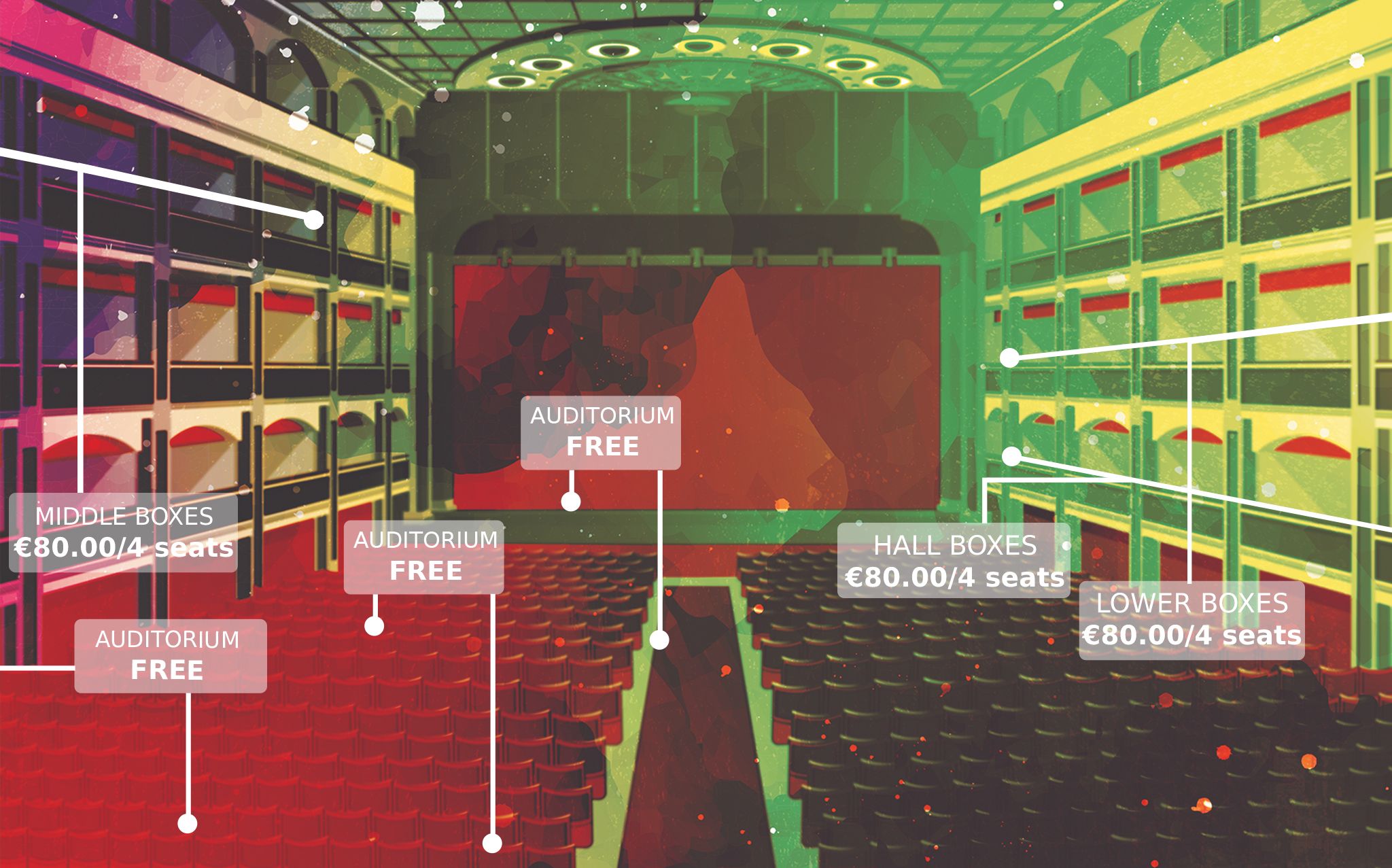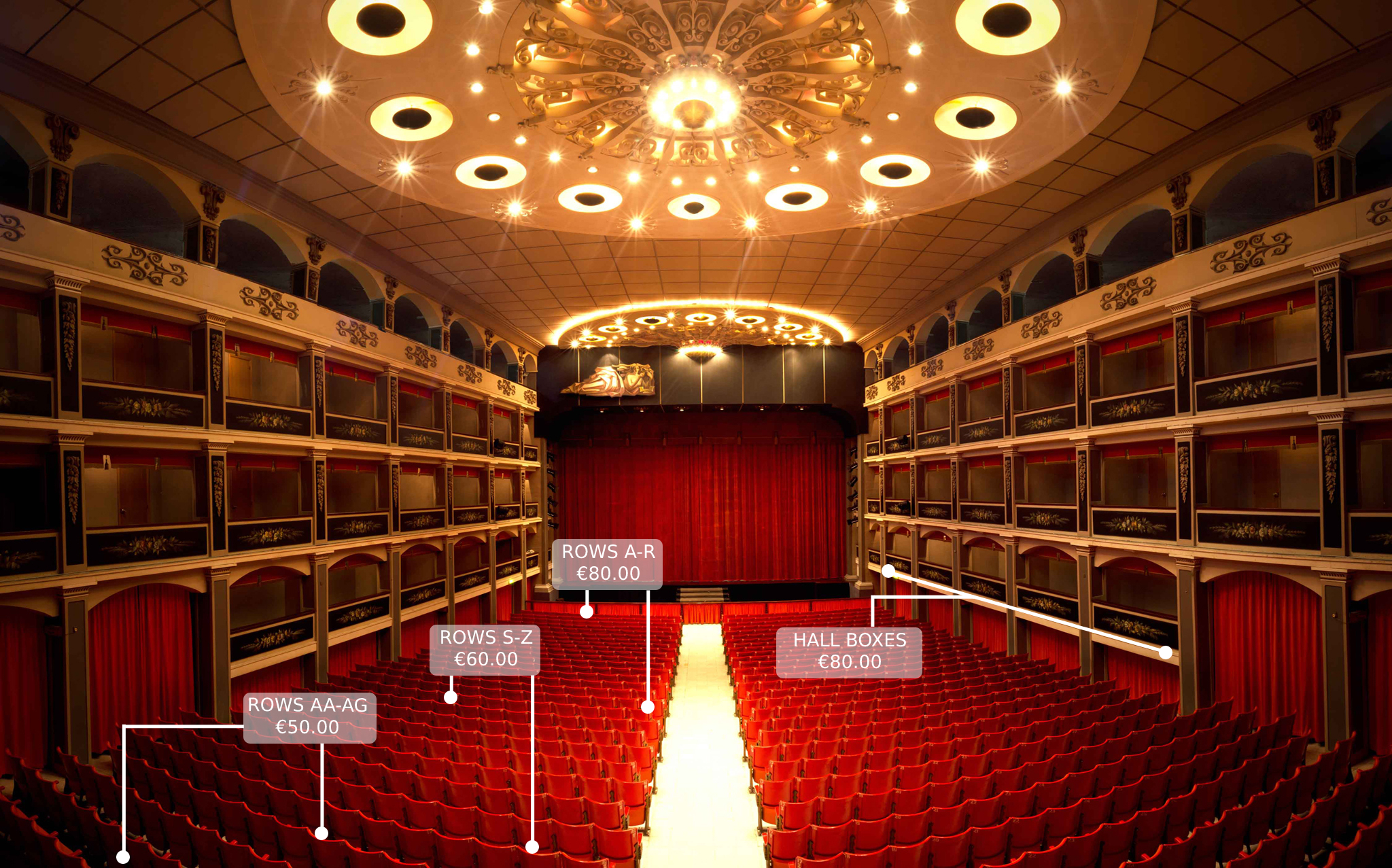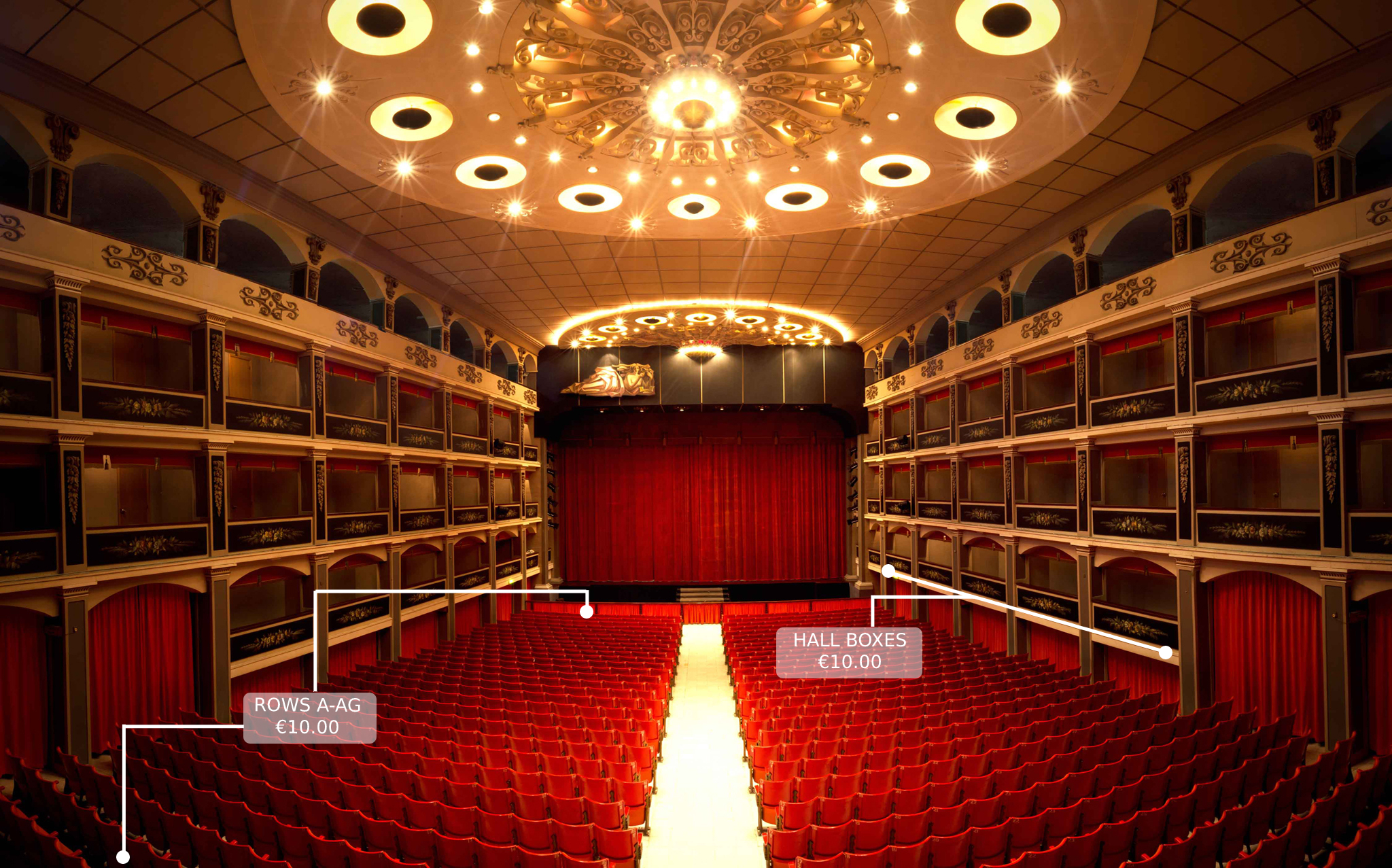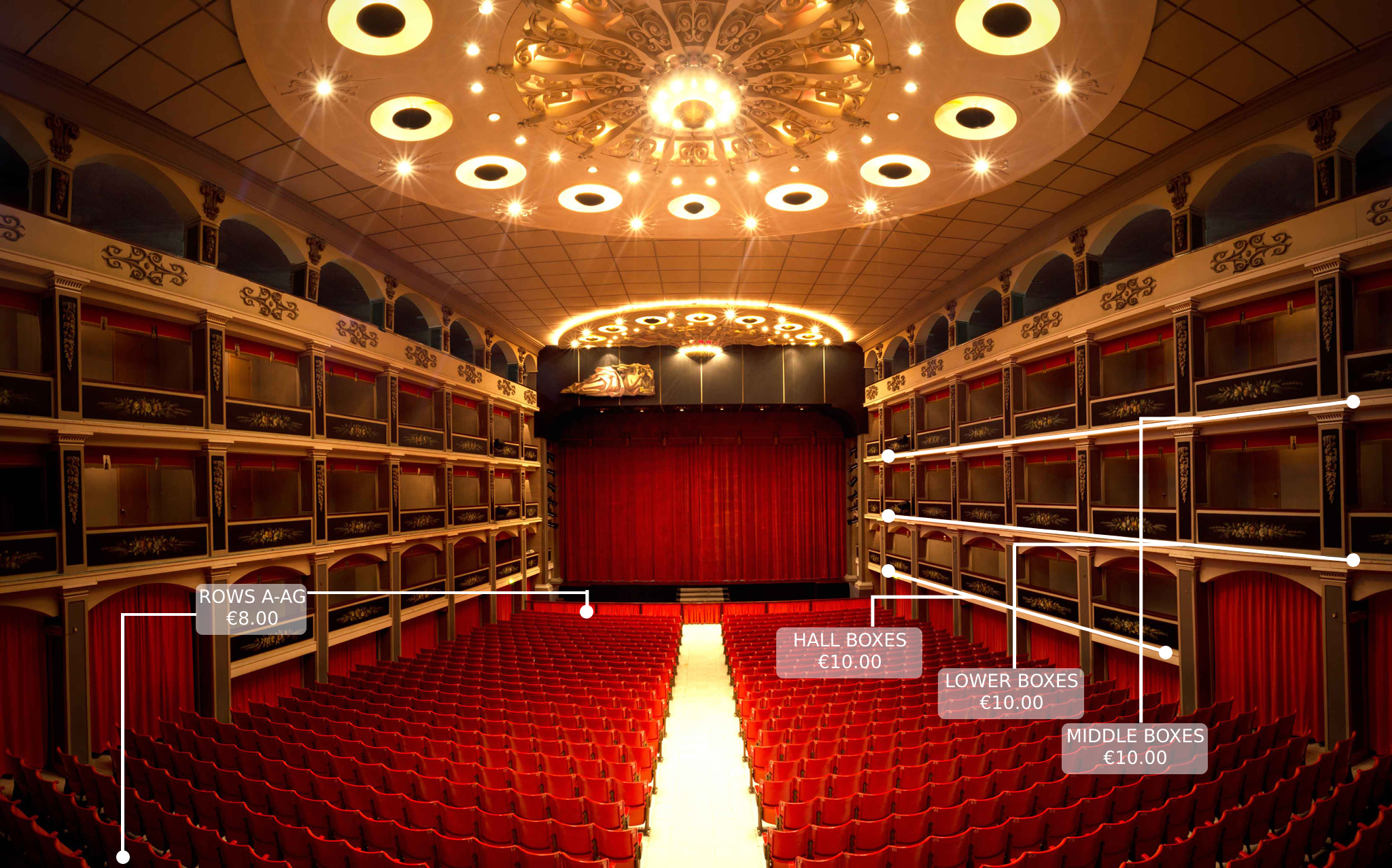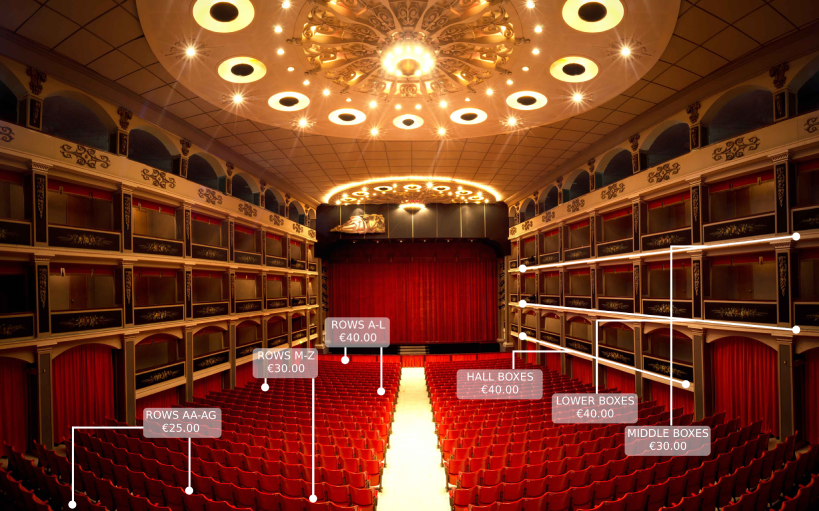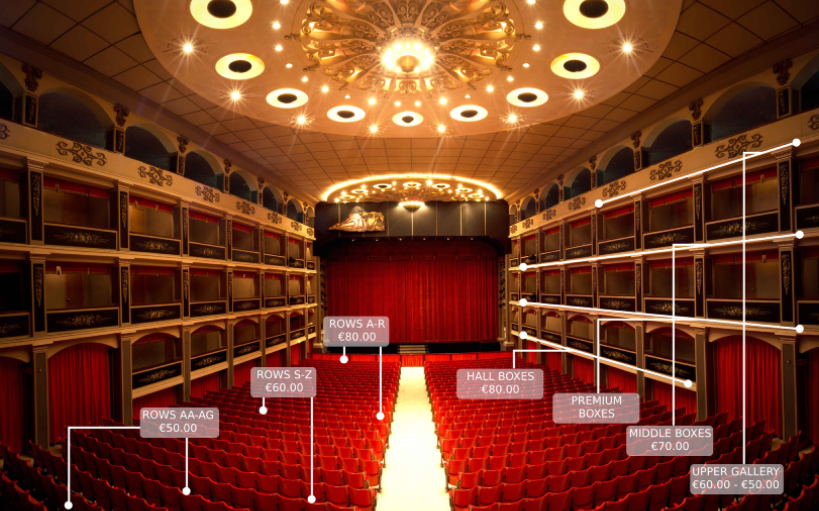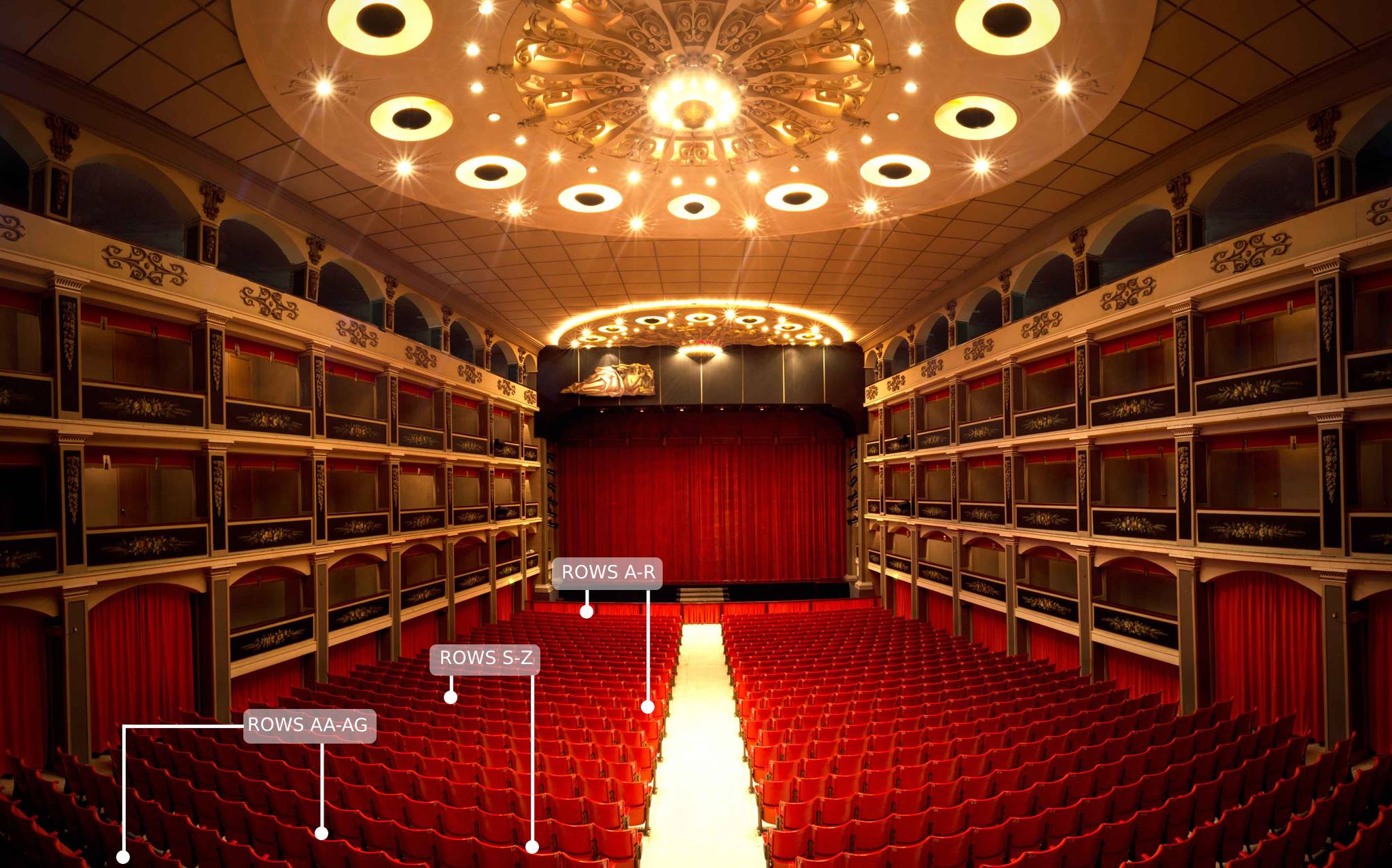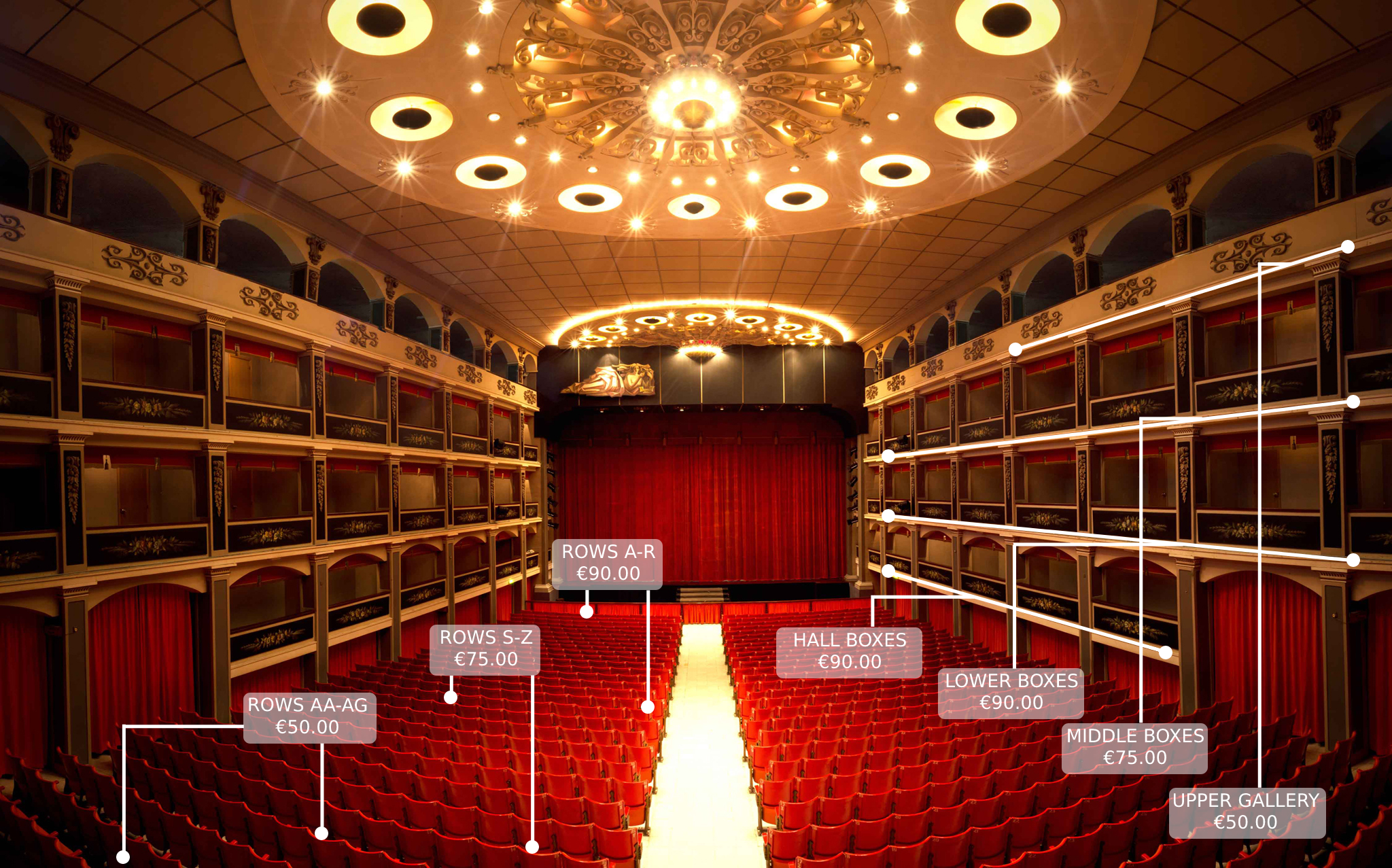A display of powerful emotions
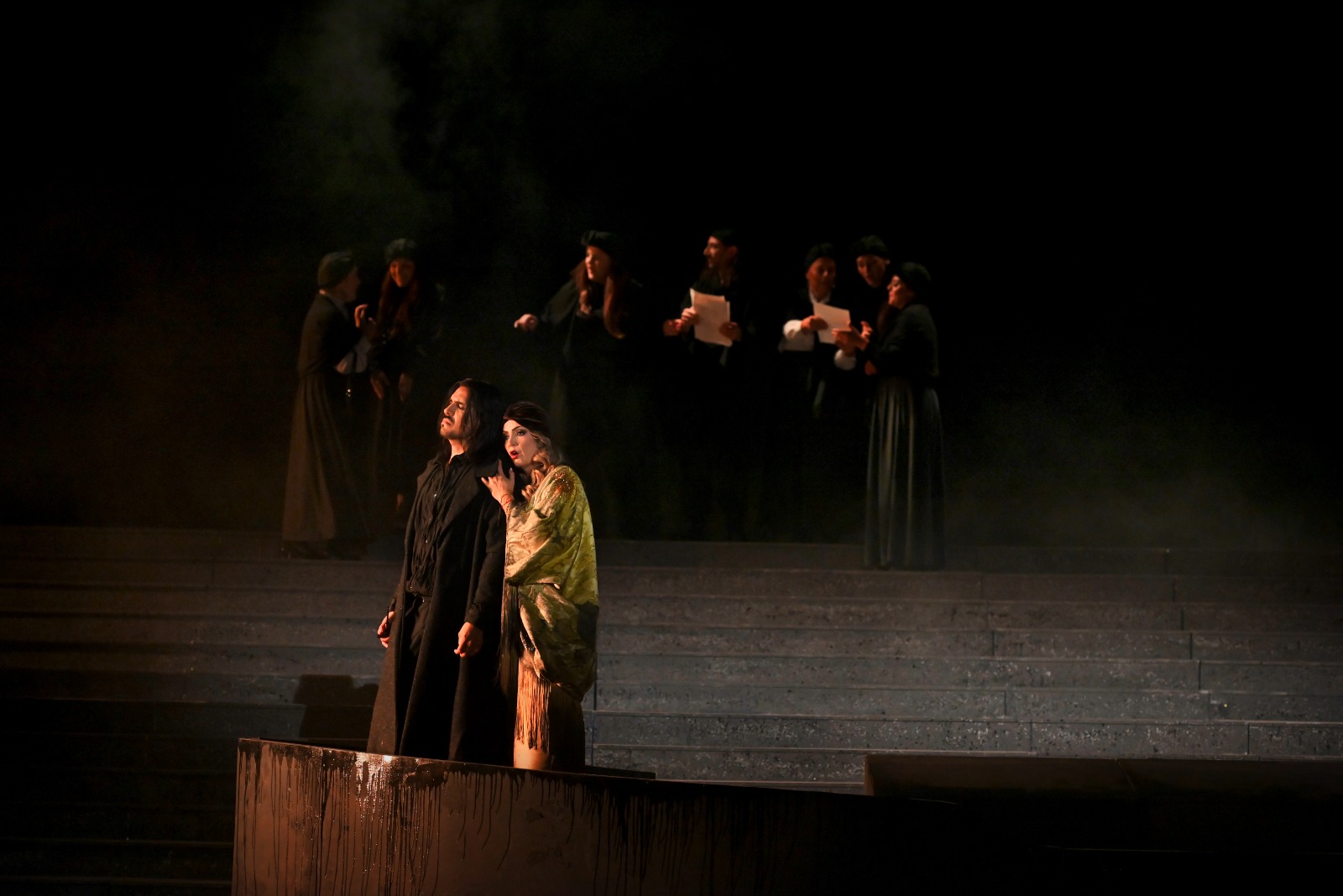
Cecilia Xuereb reviews the Aurora production of Il Trittico, performed on 12th October 2024.
Photos by David Agius, Hush Studios.
The three one-act operas that make up Puccini’s Trittico, though self contained, were meant by the composer to be performed as one bill. Though strongly contrasted, the three pieces are linked by the themes of death and love and the protagonists of the three stories display powerful emotions. Yet the three operas are rarely performed together, and they had certainly never been performed like this before last Saturday when they were presented at the Aurora Theatre in Gozo.
In this production music and stage direction worked magnificently. Colin Attard conducting the Malta Philharmonic Orchestra gave a detailed interpretation of Puccini’s fine music that had by the time of the composition of the three works developed in a way that while still adhering to the past had imbibed the influences of versimo opera and the music of the turn of the century. On stage, artistic director Riccardo Buscarini, brought out all the subtleties of the librettos. These were aided by the Mike Zerafa’s stage and Moritz Zavan Stoeckle’s lighting designs and Luke Azzopardi’s costumes. Excellent singing all round, especially from the ensembles supported three singers in particular who stood out in the course of the evening. These were tenor Vitaliy Kovalchuk as Luigi, baritone Armando Pina Lopez as Michele in Il Tabarro and soprano Renata Vari as Suor Angelica. The works have a lot of ensemble singing and this was excellent, while the minor characters sang and acted with great confidence throughout.
The first panel was dark. The sordid life of Paris bargees on the river Seine was acted out against a minimalist set. The dominant colour was black, the only bright touch being the costume of Giorgetta (soprano Renata Vari). Starting with a gently rising theme representing the calmly lapping waves the performance moved relentlessly to its tragic climax with an inexorable increase in musical and dramatic tension. As events built up to a swift climax the music became more sinister leading to Michele’s beautifully sung soliloquy, “Nulla! Silenzio!” with its bleak dark opening. Prior to this the duet between Michele and Giorgetta was no love duet, but it rather emphasised the strained relationship of the two: Michele’s simmering, ultimately murderous, obsessive passion and Giorgetta’s frustrated desires. There was a concentration of passion bursting its bounds.
On-stage murder in Il Tabarro is replaced by on-stage suicide in Suor Angelica, the second of the three panels. Once again the dominant colour was black, but this time the black habits of the nuns are lightened by strikingly bright white head-dresses and set in an attractive garden scene. The sordid ambience of Paris workaday life is replaced by an ambience of spirituality expressed in the voices of the almost entirely female voices. Secret desires and longings are present here as well, but beside the dark passions of the previous opera is a lightness of manner. For Angelica’s (Renata Vari) emotions are those of a mother rather than a lover. This is heard straightaway in the music which opens with soft strings and harp that establish the ordered, spiritual life of the convent. But this is a kind of death, the death of desires. The delicate scoring of the music with its emphasis on the woodwind prepared the atmosphere most beautifully against which an ensemble of nuns carry on a day-to-day conversation.
The opera is episodic, the plot rather static, but the artistic direction very cleverly avoided any sense of ‘nothing happening’. But passions remain a disturbing, inevitable part of life and can destroy one’s self. The action only becomes dramatic with the arrival of the carriage bringing Angelica’s aunt (mezzo soprano Graziella DeBattista). At this point a new tune infused the spiritual delicacy of the opening with human passion, as the new theme was repeated by a solo flute and viola with pizzicato violins. The contrast between the autocratic aunt and the trembling nun was immediately palpable until at last Angelica’s feeling burst out. Left alone, Angelica sang a soliloquy “Senza mamma”. Sensitively sung with a lot of melodic persuasion that left no trace of the potentially sickly, if original tune, this was a very moving moment in the production. Puccini’s origial scoring once again came to the fore as the harp carried the tune while the violins provided the accompaniment. Following a slight respite in the music, torn between hopelessness and guilt, Angelica commits suicide, but even as the tragedy falls, it is quickly diverted as the religious ambience returns. In response to her prayer, the Madonna came to her help, as a fierce light suggested the gates of heaven opening and Angelica was united with her son. Overall this was a performance and production full of sweetness and pathos.
In the final panel of the triptych the mood swung round to comedy with a story, set in 13thc. Florence, of Gianni Schicchi who, by impersonating a dead man, bequeathed to himself a handsome legacy and the best mare in Buoso Donati’s stable – a story that “laughed and would make the people laugh”. Even the meanest passion, greed, led unintentionally to two lovers being brought together. The doorway between life and death has already shut with Buoso Donati on the wrong side, although the outwitting of lesser unworthies by a more cunning rascal is built on an attempt to deny the fact. The story is not about individuals so much as types, drawing on the Italian tradition of the commedia dell’arte.
Gianni Schicchi is one of the finest of comic operas. In it, character and situation are presented with a pace, and economy rarely met, and provides a supreme example of one end of his musical spectrum.
The colours of the costumes were bright. The action on the stage moved frantically. It was slick and very well concerted, even stylised at times. The director concentrated on the ensembles even at the expense of the main characters including, to a certain extent, Gianni Schicchi (Armando Pina Lopez) who became part of the ensemble. This was very well done but also at the expense of the music. The various themes in the score, the ironical music, the love themes, the hymn to Florence, were all but lost to the action on stage. Even Rinuccio (Federico Buttazzo) and Lauretta (Laura Esposito), the two lovers, lost their idividuality to the extent that Lauretta’s heart-stoppingly beautiful aria “O mio babbino caro” which convinced Schicchi to ‘help out’ did not impress as much as it deserved. As a final contrast with Suor Angelica rather than going to heaven Schicchi is on his way to hell.
Apart from the principals the casts were made up of both foreign and local singers. A special mention goes to mezzo soprano Graziella DeBattista who took part in all three operas, playing highly different characters. In Il Tabarro she was La Frugola with her dream of a country cottage idyll. She displayed a domineering personality as the arrogant aunt in Suor Angelica, while in Gianni Schicchi she played the snobbish cousin Zita who would never dream of socialising with an upstart. Both vocally and physically, perhaps a little less so in the third opera, she was a central figure on stage.
